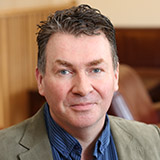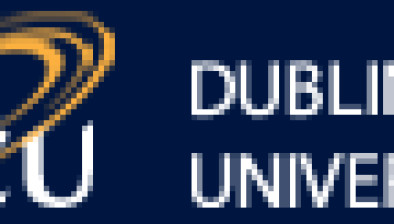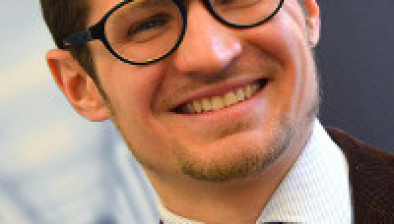Irish academic on Azerbaijani ‘blacklist’ may defy the ban

Dr Donnacha Ó Beacháin
An Irish academic whose visit to disputed territory saw him end up on a notorious Azerbaijani “blacklist” alongside the likes of late celebrity chef Anthony Bourdain has said he could go back next year.
Dr Donnacha Ó Beacháin, associate professor at DCU School of Law and Government, is one of nearly 900 individuals banned from entering Azerbaijan in connection with the country’s decades-long dispute with neighbouring Armenia over Nagorno-Karabakh, a breakaway region roughly a fifth smaller than Northern Ireland.
Speaking to Irish Legal News, Dr Ó Beacháin said the blacklist “was almost like a mythological thing for a while – people used to say that it existed, but it had never been published”.
However, Azerbaijan’s Ministry of Foreign Affairs has now taken to publishing the blacklist on its website, where it is regularly updated with an ever-expanding list of individuals. The academic is one of only two Irish nationals on the list, alongside a journalist for The Irish Times.
“I can’t really guess what their motives were [in publishing it], but maybe it was an attempt to instil some sense of shame or embarrassment in people on the list,” said Dr Ó Beacháin. “In my case, it has completely the opposite effect. There’s no better way of publicising the research that you do than to say it’s so important to a country that they’ve decided to ban you from entering!”
Dr Ó Beacháin’s research – as many graduates and students of Law and Politics at DCU will know – focuses on unrecognised states and disputed territories, including Nagorno-Karabakh (also known as the Republic of Artsakh) and the likes of Abkhazia, South Ossetia and Transnistria.
He was added to the Azerbaijani blacklist after visiting Nagorno-Karabakh in 2012 in order to observe its presidential elections, which were unrecognised internationally and therefore lacked the oversight of typical international bodies such as the OSCE.
“There has been a frozen conflict in Nagorno-Karabakh for almost 30 years and institutions have grown in the intervening period,” said Dr Ó Beacháin.
“They have elections, they have a parliament, they have a president. In my research, I’ve been looking at the electoral processes and at elections because ultimately, in conflict resolution negotiations, those who represent those regions are the products of elections.
“It’s important to know whether those elections were free and fair, or at least to what extent they were competitive, and to what degree they reflect the society they claim to represent.”
Following his visit in 2012, which fed into his 2015 article on elections in Abkhazia and Nagorno-Karabakh, Dr Ó Beacháin was warned by the Azerbaijani embassy in London that he had entered its territory illegally and would likely face repercussions.
Azerbaijan regularly removes individuals from the blacklist if they issue a statement recognising its sovereignty and territorial integrity, effectively rejecting Nagorno-Karabakh’s statehood.
However, Dr Ó Beacháin said he would not be prepared to make a “political statement” to be allowed to return to Azerbaijan, adding: “I don’t have a political view on the conflict, per se, in terms of what the final outcome to the conflict resolution process should be. My purpose was to investigate the electoral processes there.
“To be honest, because the government of Azerbaijan is a hereditary dictatorship, I certainly don’t feel compelled to say that I respect their jurisdiction or their right to rule at that moment in any part of Azerbaijan. This is not a legitimate government, to put it mildly, and that’s not unique, unfortunately, in the post-Soviet sphere.”
Fresh presidential and parliamentary elections are set to take place in Nagorno-Karabakh next year and Dr Ó Beacháin said he may return to the territory to observe them.
He added: “Being on the blacklist wouldn’t dissuade me from going back.”










